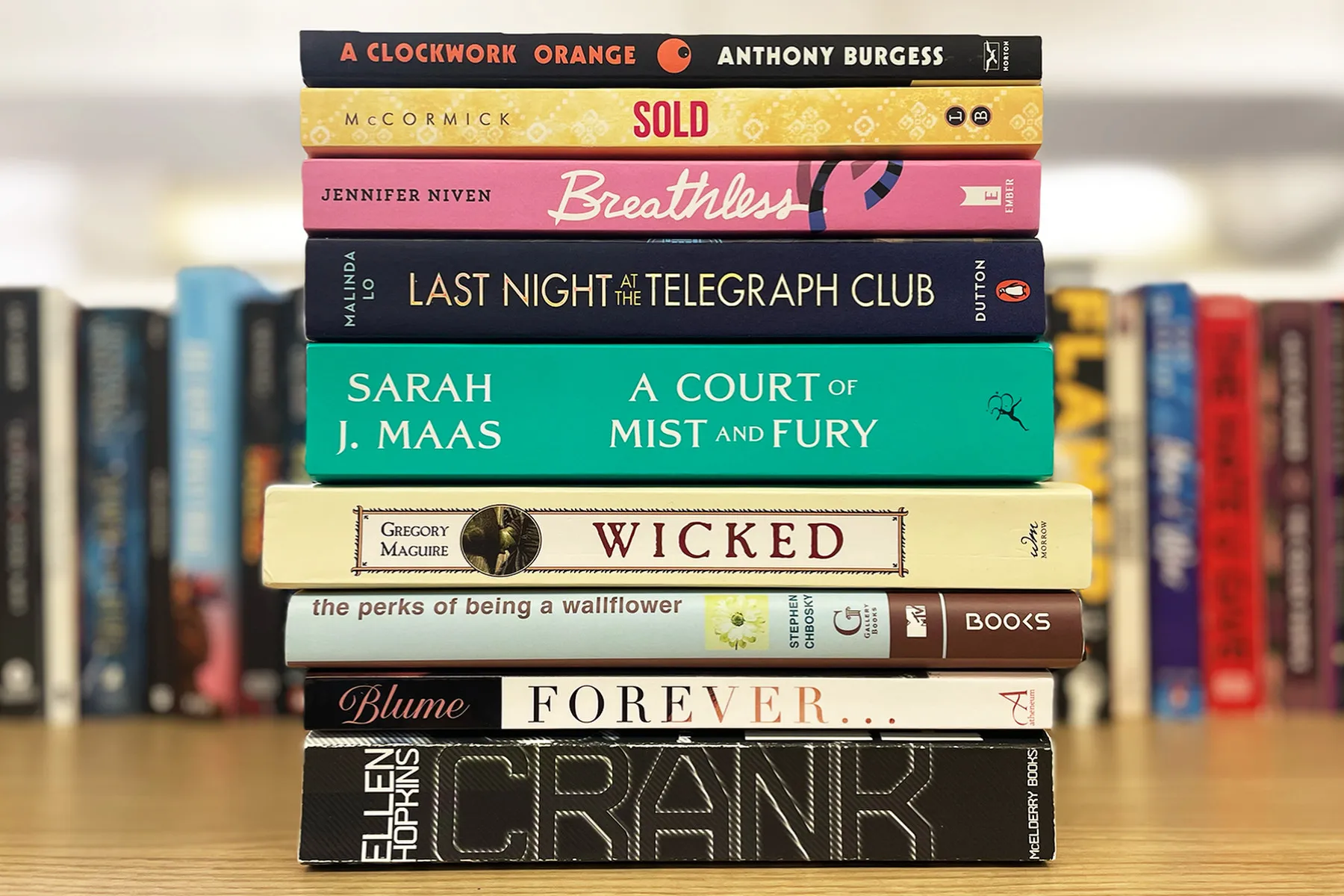
Not only does the book-banning trend that has escalated over the past several years show no signs of slowing down, it is increasingly becoming “normalized,” according to new research by PEN America. The freedom of expression advocacy group released its report “The Normalization of Book Banning” on Wednesday — just ahead of Banned Books Week, which kicks off Sunday — finding that state laws and White House executive orders have made censorship in public schools practically routine over the past year.
Books with themes related to race, gender, sexuality and assault continue to be targeted, with PEN America identifying almost 23,000 cases of book bans across 45 states and 451 school districts over the past four years. From July 2024 to June 2025, PEN America recorded 6,870 instances of book bans across 23 states and 87 public school districts. Three states led the nation in book bans last school year: Florida (2,304 bans) Texas (1,781 bans) and Tennessee (1,622 bans).
Books have been purged from public schools based on state laws, inflammatory rhetoric from lawmakers and the labeling of LGBTQ+ themes as “explicit,” PEN America found. The circulation of statewide “no read” lists that restrict access to certain titles in public schools has also contributed to the problem.
“Censorship pressures have expanded and escalated, taking on different forms — laws, directives, guidance that sow confusion, lists of books mislabeled as ‘explicit’ materials, and ‘do not buy’ lists,” Kasey Meehan, director of PEN America’s Freedom to Read program, said in a statement. “A disturbing ‘everyday banning’ and normalization of censorship has worsened and spread over the last four years. The result is unprecedented.”
In its report, PEN America sounded the alarm about pervasive book banning in school districts nationwide. It blames rising censorship on “anti-woke, anti-DEI, and anti-LGBTQ+” extremists in and out of public office and the compliance of school officials who feel under attack from their threats to cut funding or even bring criminal charges.
“No book shelf will be left untouched if local and state book bans continue wreaking havoc on the freedom to read in public schools,” Sabrina Baêta, senior manager of PEN America’s Freedom to Read program, said in a statement. “With the Trump White House now also driving a clear culture of censorship, our core principles of free speech, open inquiry, and access to diverse and inclusive books are severely at risk. Book bans stand in the way of a more just, informed and equitable world.”
With 23 bans, “A Clockwork Orange” by Anthony Burgess was the most censored book over the past year. “Sold” by Patricia McCormick and “Breathless” by Jennifer Niven received 20 bans apiece, while “Last Night at the Telegraph Club” by Malinda Lo and “A Court of Mist and Fury” by Sarah J. Maas garnered 19 bans and 18 bans, respectively.
Over the past year, book bans took aim at the works of roughly 2,600 creatives, including 2,308 authors, 243 illustrators and 38 translators. Women are overrepresented among the five most banned authors, but horror master Stephen King ranked first, with a whopping 87 titles restricted a total of 206 times.
“I am now the most banned author in the United States — 87 books,” King recently wrote on X. “May I suggest you pick up one of them and see what all the pissing & moaning is about? Self-righteous book banners don’t always get to have their way. This is still America, dammit.”
Ellen Hopkins, author of the young adult novels “Crank,” “Burned,” “Impulse” and “Glass,” ranked second among most banned authors. She had 18 titles banned a total of 167 times. Rounding out the top five banned authors are fantasy author Maas, known for her book series “Throne of Glass,” “A Court of Thorns and Roses” and “Crescent City.” Maas had 21 titles banned a total of 162 times, while bestselling author Jodi Picoult had 23 titles banned a total of 62 times. New to the most banned creative list is Japanese manga artist Yūsei Matsui, with his 22 manga books in the “Assassination Classroom” series banned a total of 54 times.
While book bans in this country persist, PEN America points out that most Americans oppose censorship in public schools. During National Banned Books Week, taking place next week, freedom of expression advocates will come together to defend the public’s right to access a wide range of reading materials and protect the freedom to read. Their efforts will culminate in Let Freedom Read Day on October 11, which will feature students, parents, librarians and authors making the case against censorship.



